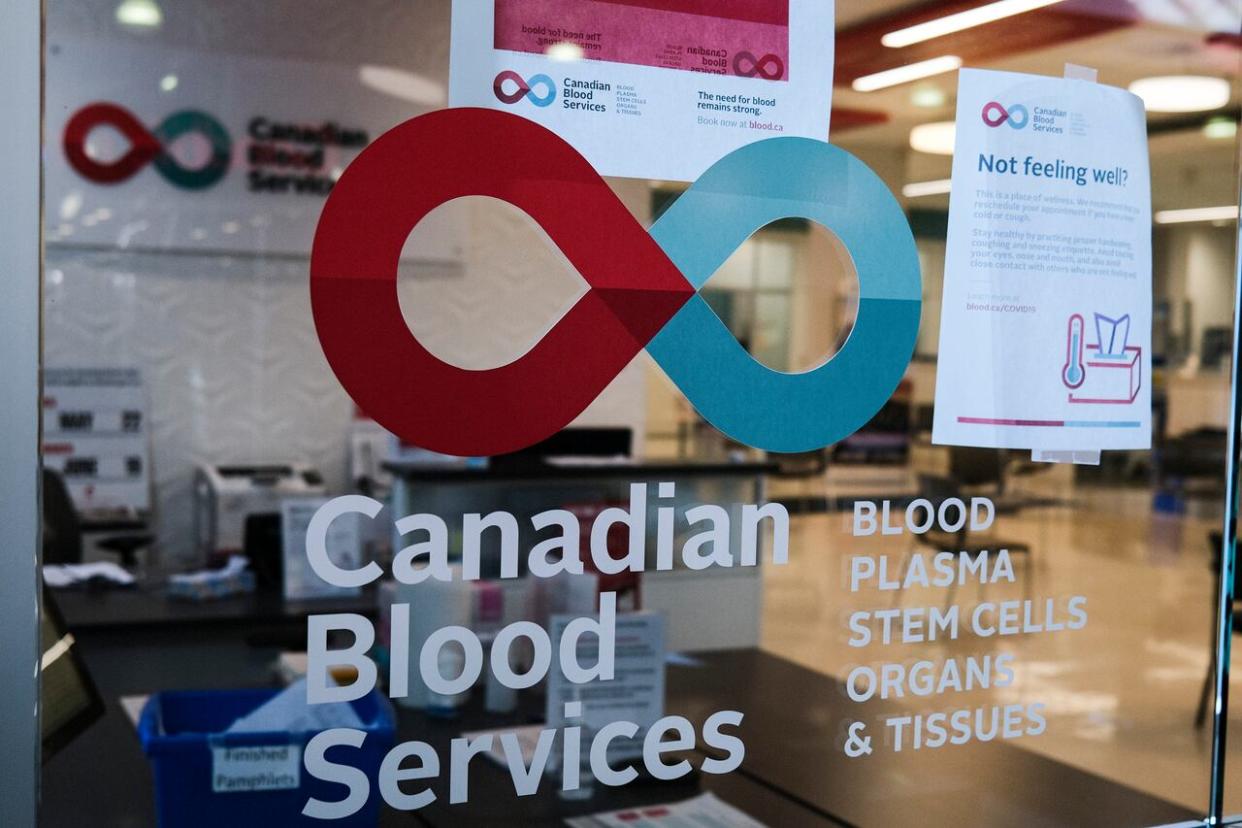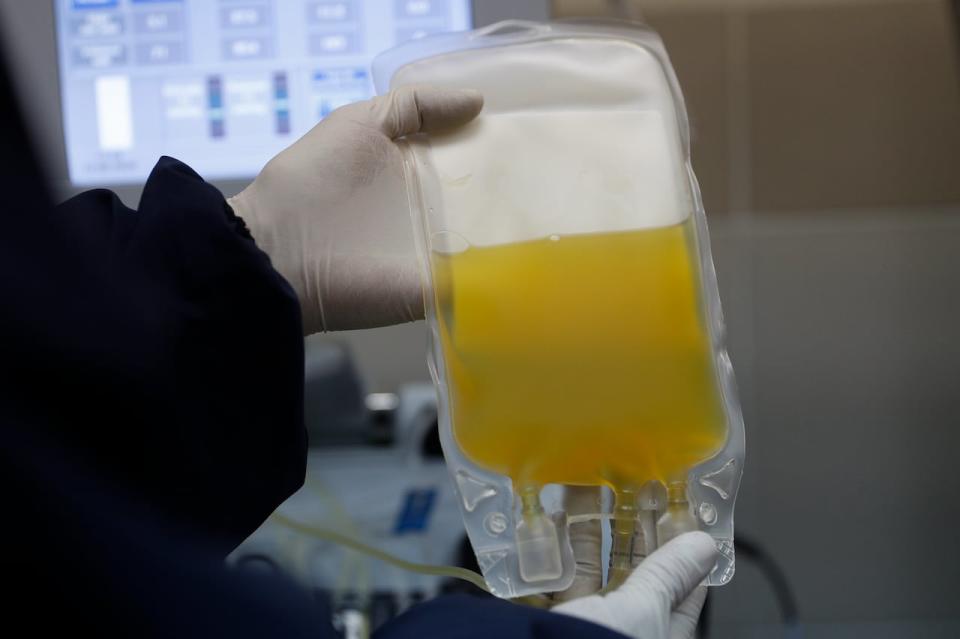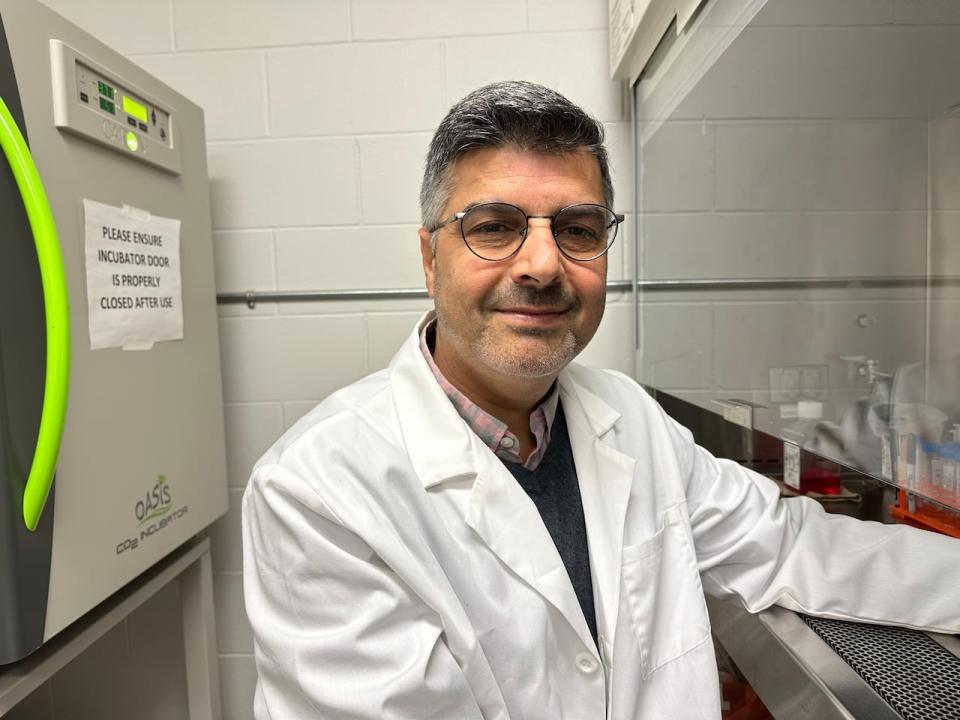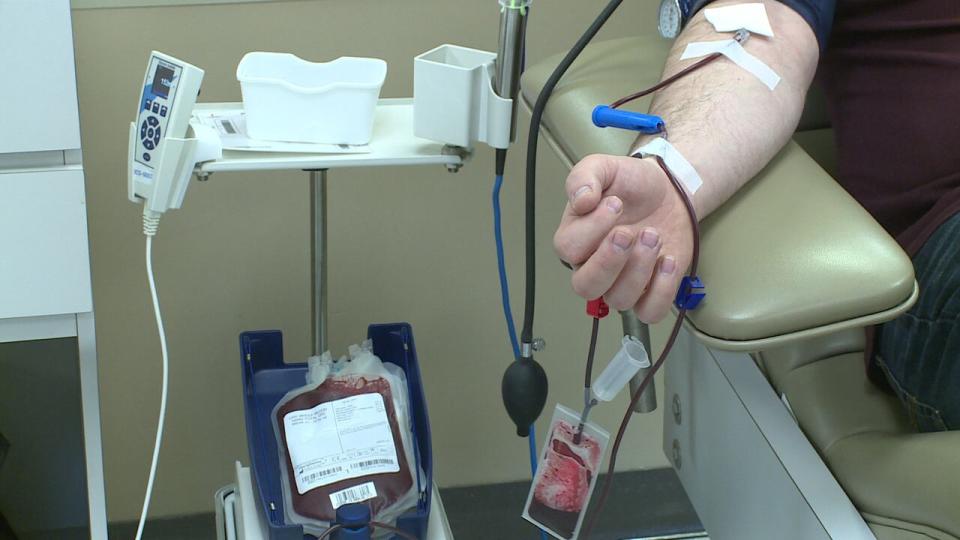Windsorites were dedicated blood donors. Canadian Blood Services now wants them to give plasma

Since Windsorites have proven to be dedicated blood donors, Canadian Blood Services hopes they'll be just as generous when it comes to giving plasma.
After closing its Windsor blood clinic in July 2023, Canadian Blood Services (CBS) is now opening a plasma centre on Jan. 17 at 3015 Howard Ave. in the Roundhouse Centre.
"Windsor had some amazing opportunities, we had an amazing donor base and so this just gives that donor base an opportunity to give more and to give more often," said Judy Jones, CBS's associate director of donor recruitment.
"One of the things we did see in Windsor is the population came out and came out on a very regular basis and that makes for a very strong plasma donor base because you can actually donate more often."
The move to plasma, according to the organization's associate director of donor recruitment, is to help boost Canadian supply of the substance.
"We see a rise over the last number of years of patients who need plasma and we want to make sure that we're getting that plasma from donors within Canada," said Jones.
According to CBS, Windsor will be the ninth city in Canada to have a plasma-specific donation centre.
What is plasma?

In a June 12, 2020 file photo, a doctor holds a bag of blood plasma at a blood bank in La Paz, Bolivia. (Juan Karita/The Associated Press)
Plasma is the fluid component of blood and it helps circulate nutrients, hormones and proteins throughout the body, according to assistant professor in the University of Windsor's biomedical department Munir Rahim.
"Plasma can be replenished by the body within 48 hours. It's 90 per cent water," said Rahim, who is also the principal investigator at the university's immunology lab.

Munir Rahim is an assistant professor at the University of Windsor's biomedical department. He is also the prinicipal investigator in the university's immunology lab. (Jennifer La Grassa/CBC)
He says harvested plasma can be used in two different ways: for transfusion or to create medications for people.
"These are life-saving therapeutics," he said about the medications created from plasma.
"Different proteins, hormones, anti-coagulation factors that are present in the blood, antibodies ... all those different components can be separated from the plasma and each component can be used."
Who benefits?
The CBS says donations from its centres will go toward creating medications, known as plasma protein products.
The CBS website outlines that there are three main categories of plasma protein products:
Immunoglobulin: this helps people with some immunodeficiency disorders, autoimmune or neurological disorders.
Albumin: this helps people with liver disease, patients treated for shock or serious burns.
Coagulation factors: this helps patients living with congenital bleeding disorders.
"There's many patients that actually need these plasma protein products every month, every two to three weeks," said Jones.
What is the donation process like?
For a first-time appointment, Jones says people should expect a 90-minute appointment.
During the appointment, she says donors will have the chance to ask questions and get informed about the process.
According to Jones, it is very similar to donating blood. The actual donation part of the process will take 45 to 50 minutes, says Jones. She says that's about 20 minutes longer than it takes to donate blood.
The process involves a needle removing blood from the person's arm, spinning that blood in a machine to separate out the plasma and then sending the blood cells back into the person's arm through the same needle, says Jones.
Since plasma regenerates very easily, Jones says people can donate every seven days. In comparison, the CBS says that men can donate whole blood every 56 days and women can do it every 84 days.
What if you want to donate blood?
Windsor doesn't currently have a blood donation clinic.
And that's been frustrating for long-time blood donor Jeffrey Baltzer, who says he doesn't plan on going to the new plasma centre.
"Now they are getting zero [blood] from me and I'm sure I'm not an island, they're probably getting zero from a lot of other donors that used to donate. Where's the blood coming from? The need didn't just drop off after many years of telling us of this need," said Baltzer, who has been donating blood since he was 17 years old.
Baltzer says he has O-negative blood — which makes him a universal donor.
He says he hasn't received any email communication from CBS about the new plasma centre that would inform him about what it is and how it works.
According to Jones, she said that CBS has been able to get the blood its no longer getting from Windsor from other centres in Canada.

Canadian Blood Services closed its blood clinic on July 28, 2023. (CBC)
Jones told CBC News that while there is no longer a blood donation clinic in the region, CBS is doing blood clinic pop-ups. Since closing the clinic, they have had about two or three in Windsor, she says.
There are also CBS mobile blood clinic in Chatham-Kent and a blood clinic in London.
While Jones says she understands the hesitancy some people might have, she hopes that people will be open to the option.
She says there is the possibility that they will bring back a blood donation clinic to the region, after they assess how well the plasma centre is doing.
As of early January, CBS told CBC News that it has had more than 700 appointments booked for the plasma donation centre.
"If you want to even just come in and visit the centre and learn more and then make your decision and talk to our staff, we'd be more than happy to support that conversation," said Jones.

